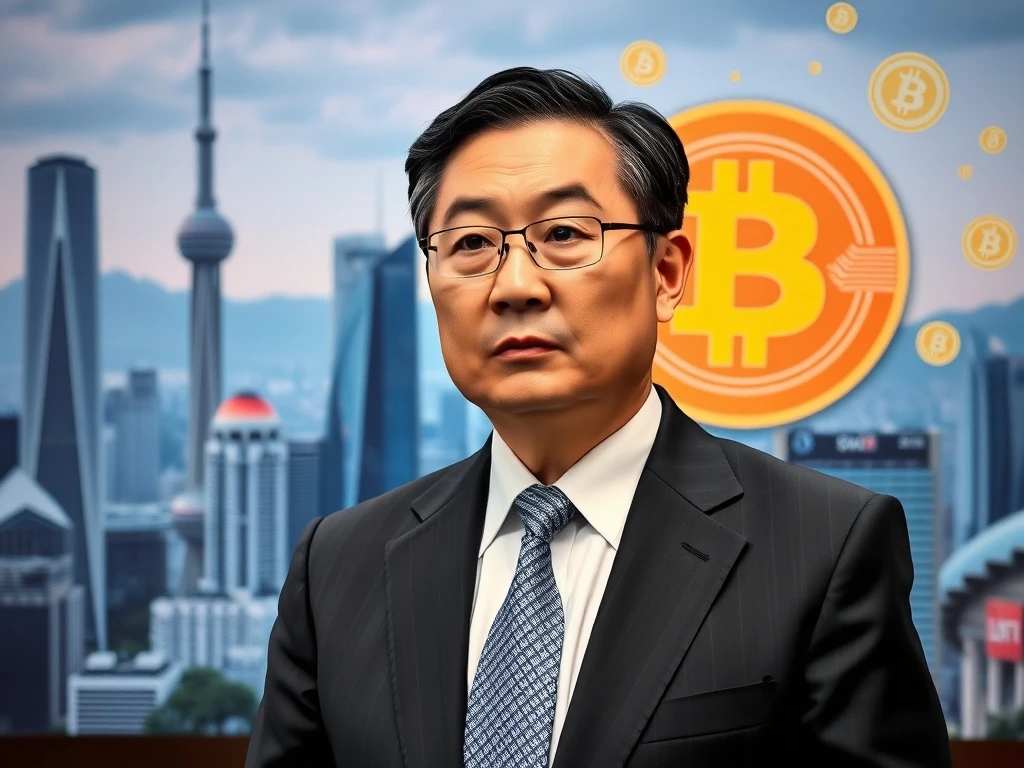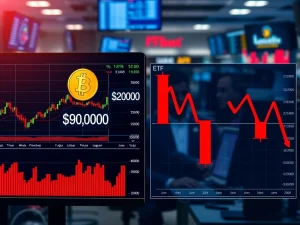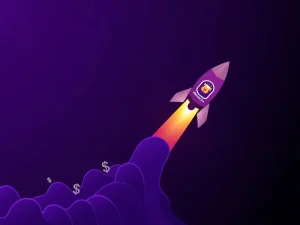South Korea Crypto Regulation: Alarming Stance from FSC Nominee on Intrinsic Value

The future of the Korean crypto market faces new uncertainties. Recently, Lee Eok-won, the nominee for chairman of South Korea’s Financial Services Commission (FSC), delivered a stark assessment of cryptocurrency. His remarks have certainly sent ripples through the digital asset community. Many stakeholders now keenly watch how this perspective will shape upcoming South Korea crypto regulation.
South Korea Crypto Regulation: A Skeptical View Emerges
Lee Eok-won, a prominent figure poised to lead South Korea’s Financial Services Commission, openly expressed his skepticism about digital assets. During recent discussions, he dismissed cryptocurrency as inherently volatile. Furthermore, he emphasized its perceived lack of fundamental worth. Lee articulated that “crypto has extreme price volatility, lacks monetary function,” and possesses “no intrinsic value.” This declaration immediately sparked debate across the industry.
His pre-confirmation hearing responses to lawmakers reinforced this view. He specifically noted that “virtual assets differ from traditional financial products like deposits and securities in that they have no intrinsic value.” Lee clarified his concerns, explaining that cryptocurrency’s unpredictable price swings make it unsuitable as a reliable store of value or an efficient medium of exchange. Consequently, these statements highlight a cautious approach to digital asset integration within the nation’s financial framework.
The Debate Over Crypto Intrinsic Value
The nominee’s comments regarding crypto intrinsic value swiftly drew criticism from South Korea’s burgeoning crypto industry. An anonymous official from a local crypto company, quoted by News1, strongly disagreed with Lee’s assessment. This official highlighted a significant counter-argument: major global corporations and even the U.S. government are increasingly holding cryptocurrencies as strategic reserves. This practice, they argue, directly contradicts the idea that digital assets lack inherent worth.
Moreover, proponents of digital assets emphasize their unique characteristics. Assets like Bitcoin, for instance, offer distinct digital utility. They are backed by robust blockchain security, ensuring transparency and immutability. Additionally, their transferability across borders without intermediaries provides significant advantages. These features, many believe, bestow a form of intrinsic value, differentiating them from mere speculative instruments. This ongoing debate underscores a fundamental divergence in how financial authorities and the crypto industry perceive digital assets’ foundational worth.
FSC Crypto Stance on Investments and Future Policy
Lee Eok-won’s FSC crypto stance extends beyond mere valuation. He also took a firm position against allowing pension funds to invest in cryptocurrencies. He clearly stated, “given the high volatility and speculative nature of virtual assets, there is widespread concern about using retirement or personal pension funds, which are meant to ensure a stable income in old age, to invest in them.” This reflects a strong regulatory desire to protect citizens’ long-term financial security from market instability.
Regarding cryptocurrency exchange-traded funds (ETFs), Lee acknowledged a mix of “expectations and concerns.” He indicated that the FSC would carefully “review global regulatory trends.” Subsequently, the commission would determine the implementation approach and timeline in close consultation with lawmakers. This cautious approach suggests a measured pace for integrating complex crypto financial products into the mainstream market. It also highlights a commitment to aligning with international standards while prioritizing domestic stability.
Opportunities with South Korea Stablecoin Initiatives
Despite a generally cautious outlook, Lee expressed a more open perspective on stablecoins. He confirmed that the FSC would actively seek to “create opportunities for innovation while ensuring adequate safeguards.” This willingness to explore stablecoin potential aligns with recent developments in the country. Late June reports indicated that eight major South Korean banks are actively working on a stablecoin project. This initiative aims to launch a stablecoin backed by the Korean won.
This development directly supports newly elected President Lee Jae-myung’s campaign promises. His platform included a list of crypto-friendly policies, notably allowing the issuance of stablecoins. Furthermore, South Korea’s Ministry of SMEs and Startups announced plans in early July to lift restrictions. This change will allow crypto-related businesses to qualify as venture companies. This marks a significant shift, as these companies were excluded from such classifications in 2018. Ultimately, these steps could foster greater innovation and legitimacy within the South Korea stablecoin and broader crypto ecosystem.
Understanding the Korean Crypto Market Dynamics
The regulatory discourse unfolds against a backdrop of significant crypto adoption within the Korean crypto market. Data from the end of March revealed that crypto exchange users in South Korea have surged past 16 million. This figure represents over 30% of the nation’s total population. The surge notably followed former U.S. President Donald Trump’s election, indicating a strong correlation with global market sentiment and economic shifts.
However, some analysts suggest that this widespread adoption is not solely driven by a deep belief in blockchain technology’s transformative potential. During a late June crypto event, Eli Ilha Yune, chief product officer at quantum machine learning startup Anzaetek, offered a different perspective. Yune proposed that the “motive comes not from […] a belief in Web3 […] like in the West.” Instead, he suggested that South Korean crypto adoption largely stems from the financial desperation afflicting the younger generation. This situation, he argued, pushes them to seek “quick money” through speculative investments. Therefore, understanding these underlying socio-economic factors is crucial for shaping effective South Korea crypto regulation.
In conclusion, the remarks from South Korea’s FSC chief nominee underscore a complex and evolving regulatory landscape for digital assets. While concerns about crypto intrinsic value and volatility remain prominent, there is also a clear intent to foster innovation, particularly in the stablecoin sector. The tension between regulatory caution and the booming Korean crypto market, driven by diverse motivations, will undoubtedly shape the future trajectory of digital assets in the region. Navigating this path requires careful consideration from policymakers and continuous engagement from the crypto industry.









